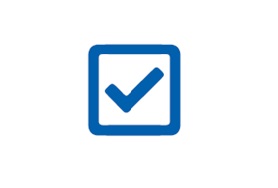Quit Smoking

The best thing you can do for your health
Most people who smoke, vape or chew tobacco want to quit and wish they had never started. Quitting is hard. But it's easier when you have help. We can offer support and resources to ease your nicotine withdrawal symptoms and get you on the road to freedom from tobacco.
Ready to get started?
- Send us an email at quittobacco@ohsu.edu. Include a contact number. One of our certified specialists will reach out to help you make a plan.
- Call 1-800-QUIT NOW (1-800-784-8669)
- Ask your provider to connect you with a certified specialist.
How to quit smoking or vaping
Some people quit all at once. Some taper down gradually. The best approach depends on you, but successful strategies include these steps:
Make a plan

Nicotine addiction is real. Counseling, medication and support can double your chances of quitting successfully. Contact us for support.
Set a date

This is a big change. Give yourself a couple of weeks to get ready. Tell people about your plan. Once you’ve set a date to quit, stick to it.
Don’t give up

The average smoker tries to quit 6-9 times before they quit for good. Hang in there. It’s a marathon, not a sprint. Each try gets you closer to quitting for good.
How we can help
Quitting without support has a success rate of 4-7%. You can double your chance of success by using our resources:
- Counseling: It’s helpful to talk with someone. Our tobacco treatment specialists will help you make a plan and set yourself up for success.
- Medication: Several drugs can help you through nicotine withdrawal, some without a prescription. We can help you get the right drug for your situation.
- Accountability: Your chance of success goes up when you have someone to check in with.
- Follow-up: We can help you with troubleshooting and brainstorming.
Health benefits of quitting smoking
Your health gets better within hours of your last cigarette. Even people who have smoked for years or smoked heavily can improve their health by quitting.
- You improve your health and life expectancy.
- You lower your risk of several types of cancer.
- You lower your risk of cardiovascular diseases.
- You lower your risk of COPD (chronic obstructive pulmonary disease).
- You lower the risk of some poor reproductive health outcomes.
Learn more about the benefits of quitting
Benefits for cancer patients
- You have a better chance of successful cancer treatment.
- You may have fewer side effects from surgery, chemotherapy and radiation therapy.
- You can reduce your risk of developing another cancer.
- You may recover from treatment faster.
- You can lower your risk of developing an infection.
- You may be able to breathe more easily.
- You may have more energy.
- You may live longer and improve your overall quality of life.
Ready to get started?
You have three ways to get started:
- Send us an email at quittobacco@ohsu.edu. Include a contact number. One of our certified specialists will reach out to help you make a plan.
- Call 1-800-QUIT NOW (1-800-784-8669)
- Ask your provider to connect you with a certified specialist.
More resources
- SmokeFree.gov
- SmokeFree Oregon
- QuitNow Oregon, Oregon Health Authority
- Getting Help to Quit Tobacco, Washington State Department of Health
- How to Quit Using Tobacco, American Cancer Society